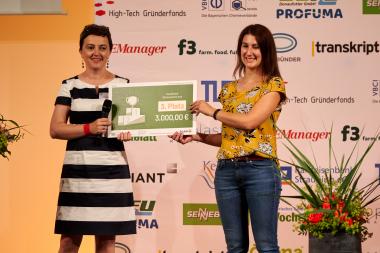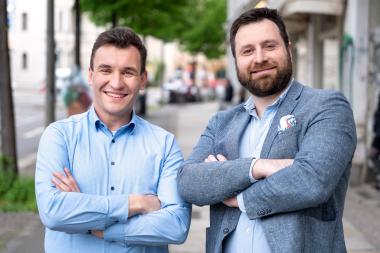International Conference on Cellulose Fibres 2022: Plastic bans drive innovation
- International Conference on Cellulose Fibres 2022, 2-3 February in Cologne, Germany and online – Call for Abstracts and Posters – 300 participants and 30 exhibitors are expected
Cellulose fibres are among the winners of the European 'Single-Use Plastics Directive (SUPD)', which has been in effect since July 2021 and entails plastic bans for a variety of single-use products. Cellulose is the main component of plant cell walls and a natural polymer. As a result, disposable products made of cellulose and cellulose fibres are not labelled as plastic and are explicitly excluded from the regulation. The success story of cellulose fibres will thus continue at a rapid pace with new developments and applications.
Building on the success of this year's conference with 200 participants, the International Conference on Cellulose Fibres 2022 will again cover the entire value chain, from lignocellulose, chemical pulp, cellulose fibres such as rayon, viscose, modal or lyocell and new developments to a wide range of applications: Textiles of all kinds, nonwovens such as wet wipes and new areas such as composites or nanocellulose in the food industry. All these sectors have gained considerable momentum in recent years.
Cellulose fibres have been a success story within the textile market with a compound annual growth rate (CAGR) between 5 and 10 % over the last ten years and similar growth rates are expected in the coming decade. This makes cellulosic fibres the fastest growing fibre group in the textile industry and also the largest investment sector in the global bioeconomy. The challenge now is to achieve a balance between the ongoing capacity expansion and the growing demand, to avoid overcapacity while still meeting rising demand from the major brands. These high growth rates are driven by the increased demand for natural fibres (and bottlenecks in cotton production), the microplastic issues, and bans on plastics in disposable applications. All three factors will continue to play an important role in the development of the sector in the future.
Companies are now invited to submit presentations as well as their latest developments for the Innovation Award.
Main topics of the conference:
- What is the impact of plastic bans on single-use products?
- The avoidance of microplastics and the transformation from fossil to renewable raw materials?
- What are the biggest challenges in developing new value chains and growing market demand?
- Which alternative raw materials for cellulose fibres are suitable and available?
- What are the latest technology and market trends?
- What are the future market dynamics? Who is active and interested in the cellulose fibre sector?
- What ecosystems and partnerships are needed to promote innovation in line with new market requirements?
- How will the political environment develop in the future?
- How can the sustainability of cellulose fibre production be further improved?
Call for Abstracts
Abstract submission is open now. You are welcome to present your latest products, technologies, developments or market trends. Submit your abstract as soon as possible.
Deadline for submission: 15 October 2021
https://cellulose-fibres.eu/call-for-abstracts
Call for Posters
Deadline for submission: 31 December 2021
https://cellulose-fibres.eu/call-for-posters
Call for Innovations
More information about the innovation award and the application can be found at
Deadline for submission: 15 November 2021
https://cellulose-fibres.eu/award-application
Sponsoring Opportunities: https://cellulose-fibres.eu/sponsoring
nova Institute





















